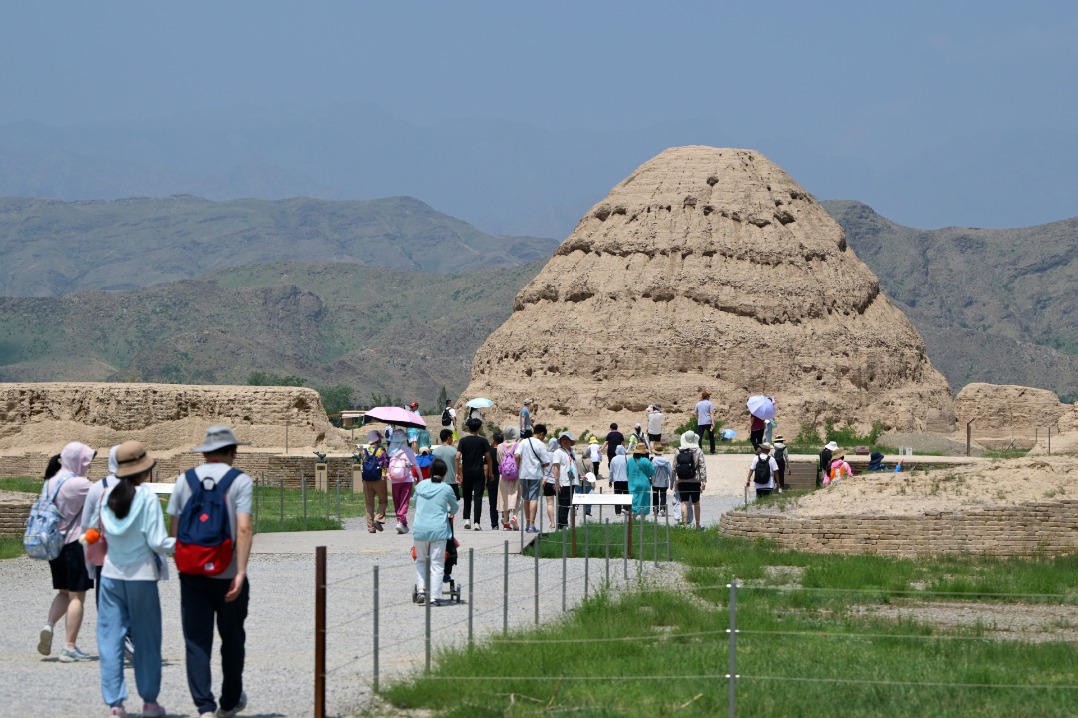Cafe boom energizes countryside economies

In Daofu, a quaint county in Southwest China's Sichuan province, traditional Tibetan homes have been beautifully transformed into cafes, seamlessly blending international favorites like butter tea and highland barley.
"Sipping a highland latte while listening to Tibetan folk songs and learning thangka painting — what a perfect way to unwind!" says tourist Xu Xiaomei.
In this county filled with Tibetan heritage, cafes don't just serve drinks — they offer local culture. "Even our coffee cups are custom-made from Daofu's black pottery," says Gao Yaojun, a manager at the hotel's cafe.
Daofu now welcomes more than 1.5 million coffee-related tourist visits each year, reflecting the wider boom of cafe culture in China's countryside. As of 2024, over 44,000 countryside coffee shops have sprung up nationwide.
To stand out in an increasingly crowded space, many rural cafes are turning to a "coffee+" model, which pairs coffee with experiences like hiking, handicrafts, or farm visits. It's not just about sipping a latte — it's about discovering what makes each place special.
In Southwest China's Guizhou province, for example, a cafe perched on a 200-meter-high cliff has gone viral online. Adventurous visitors embark on a challenging trek through the forest and climb the cliffs to reach it, with the entire experience costing nearly 400 yuan ($55.73) per person. Similar adrenaline-fueled cafes have also emerged in provinces like Zhejiang and Fujian.
In Yunnan province, one of the country's key habitats for wild Asian elephants, guests at a cafe in Pu'er can sip freshly brewed coffee while watching elephants roam and forage in the distant forests.
Some cafes have chosen to tap into their agricultural roots. As China's primary coffee-producing region, Yunnan offers visitors the chance to sip locally grown brews while exploring plantations and roasteries.
In Wanning, on island province of Hainan, coffee farm cafes let visitors roast their own beans, blending agritourism with beverage culture. Leftover coffee grounds are transformed into eco-friendly crafts, such as sand paintings, murals and scented accessories.
This rural cafe boom is largely fueled by urbanites seeking weekend escapes into nature. In the first quarter, rural tourism welcomed 707 million visitors, an 8.9 percent year-on-year increase. Revenue reached 412 billion yuan, up 5.6 percent.
The cafe boom is also energizing local economies. In Anji county, Zhejiang, a rural region with under 600,000 residents, more than 300 countryside cafes have opened in recent years. Cafes here often operate on a co-op model: villagers and collectives invest in land or resources, management teams handle operations, and profits are shared through rent, wages and dividends.
Deep Blue, one of Anji's most popular cafes, returns nearly half of its sales revenue to its local shareholders. "You've got to admire how brilliantly resourceful these young people are," says a villager.
The rise of rural cafes is also reversing urban migration. Many young entrepreneurs are returning to their hometowns, drawn by the potential of rural development. Among them is Wang Han, 27, from Xinzhai village in Yunnan. After working in Shenzhen, Guangdong province, and Kunming, Yunnan, Wang returned in 2020 to open a cafe and an online coffee business. "There's something worth coming back for. Now visitors from across China come to tour our coffee fields and taste our brews," he says.
At Deep Blue, its 127 staff members average an age of 25, and their backgrounds range from medicine to shipbuilding, according to founder Cheng Shuoqin, who grew up in Anji and launched his business in 2022 with six partners.
Cheng believes concerns about market saturation are premature. More well-educated young talent is still on the way to the countryside, he says. "The more young people return, the brighter the future is for the countryside."
Xinhua

































